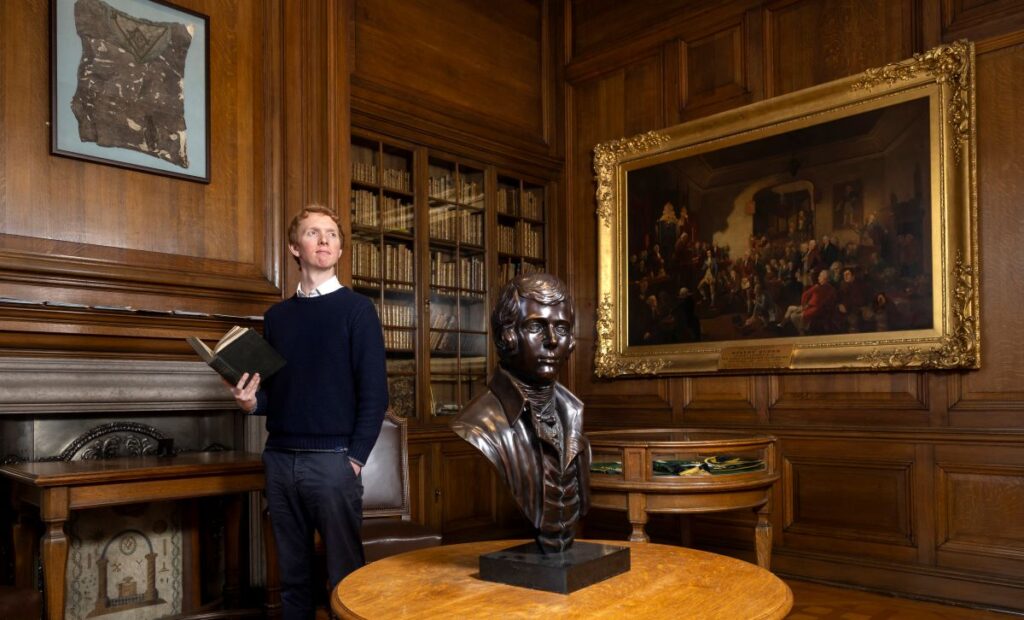
Robert Burns links to freemasonry explored in new project
The University of Glasgow’s Centre for Robert Burns Studies has appointed a dedicated scholar for a groundbreaking project examining the poet’s links to Freemasonry.
The celebrated Scottish poet was not only a prolific writer but also a dedicated Freemason throughout his adult life, serving as Senior Warden of Lodge St Andrew, Dumfries, until his death in 1796, with earlier powerful masonic connections also in Edinburgh and Ayrshire.
His Masonic affiliations even influenced his work, including one of his most famous poems, A Man’s a Man for a’ That, which was notably performed at the opening of the Scottish Parliament in 1999.
This pioneering PhD research, funded by The Grand Lodge of Antient Free and Accepted Masons of Scotland, marks the first in-depth academic study of its kind, with unprecedented access to the Grand Lodge’s archives.
‘It is an honour to have been awarded the Scottish Masonic Scholarship by the University of Glasgow, and to have been given the chance to undertake such necessary research,’ Patrick Jamieson, the new Burns and Freemasonry scholar said.
‘Already, study of these records has provided information about a number of Burns’s patrons which begins to corroborate previous theories about the role a masonic network might have played in facilitating his ascension to the status of ‘Caledonia’s Bard’.
‘I look forward to delving deeper into the archives over the coming years and discovering new insights into this fascinating and understudied part of Burns’s life and career.’
Evidence of Burns’s Masonic life is preserved at the Grand Lodge of Scotland in Edinburgh, where his original Masonic apron is displayed in the museum.
‘Robert Burns’s career was often boosted by his Masonic networks,’ said Professor Gerard Carruthers.
‘There is nothing sinister about this: Burns to begin with did not have a lot of power. Indeed, he did not even have a vote and Masonry provided the poet with access to an intelligent, highly cultured grouping that was objectively interested in him.
‘This new scholarship will give us time for a deep and controlled dive into what Freemasonry brought to Burns.’
Read more Culture stories here.
Subscribe to read the latest issue of Scottish Field.
TAGS

